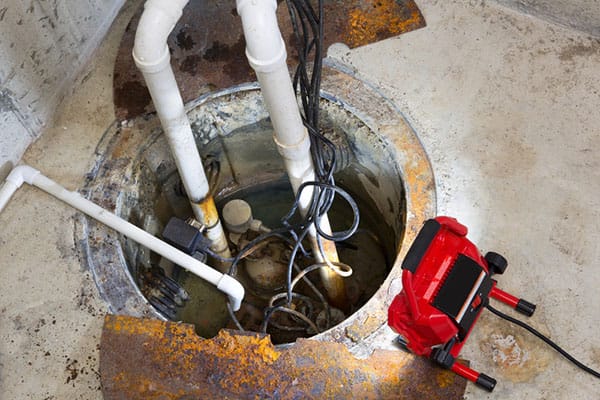
With spring rains and spring flooding, water damage to the interior of homes caused by groundwater is a common problem—the damage from which is universally excluded under homeowners insurance.
This article examines both insurance and noninsurance strategies to counter groundwater damage.
What the Homeowners Policy Doesn't Cover
Homeowners policies don't cover damage from water entering at or below the surface of the ground. Examples include sewer water that backs up into your home through the basement floor drain, water that seeps through your foundation from heavy rains, and water from flooding. The bottom line is that if water comes into a home at or below ground level, the damage is not covered.
How to Protect Yourself
First, reduce the risk as much as possible. If you don't have a sump pump, consider getting one installed. It is considerably less expensive than you would expect. In Minnesota, I highly recommend Standard Water Control Systems. If you live anywhere else in the nation, find a reputable contractor in your area who is "certified" by the National Association of Waterproofing and Structural Repair Contractors. "Certified" contractors are best because they have undergone extensive additional training.
Estimate the amount of damage you could incur if your sump pump fails (i.e., if the power blows in a storm, making your pump inoperable) or if the sewer backs up. Buy an optional homeowners policy endorsement called "Sump Pump Failure and Sewer Backup Coverage" that will cover that damage. Buy coverage for the lesser of that estimated amount or the maximum limit the insurer offers. If your homeowners insurer doesn't offer the limits you need, work with your agent to change insurance companies to one that does.
Protect Against Your Sump Pump Failing
There are three reasons why your sump pump can fail.
- A storm causes a loss of power to your system.
- The sump pump can't handle the amount of water from a "100–year torrential rain" (which we seem to get every 2 or 3 years these days).
- The discharge system isn't large enough to handle the volume of water being expelled.
If you do buy a battery backup for your sump pump, there are two other potential problems.
- The battery fails or, over time, simply doesn't hold the charge.
- The battery fails because it was low on water.
My certified contractor proposed and installed a full backup system with three component parts: (1) a rechargeable backup battery that has a built-in alarm to remind you that fluid levels are low, (2) a backup sump pump that can pump out as much or more volume of water than your original sump pump, and (3) an extra discharge hose.
What's the Cost?
The fully installed cost of parts and labor from my "certified" contractor (Standard Water Control Systems) was $1,200 to $1,300. This is for an entire four-component backup system, as opposed to just a backup battery system, which typically runs $600 to $700 by itself. If you do decide to buy this backup system as a way of managing the risk of your sump pump failing for whatever reason, I think it's safe for you to reduce your sump pump failure/sewer backup coverage to whatever amount of coverage you need for possible sewer backups.
Consider Federal Flood Insurance
If the amount of water or rain that could enter your home would overwhelm your sump pump, or if a sump pump is not feasible for you, flood insurance might be for you. Premiums are reasonable, starting at around $120 a year if you qualify for the preferred program. And a "flood" is not limited to rivers overflowing or dams breaking. You are covered for water damage claims even from simple rainstorms if you and an adjoining neighbor get flooded or if just you get flooded if you have two or more acres.
To find out whether your risk of a flood is low, moderate, or high, go to the federal flood site. Input your address, and it will tell you your risk level and give you some estimated premiums for various levels of coverage.
Warning: Flood insurance has a 30-day waiting period after it is purchased before a flood will be covered, so be sure to buy it well before you start filling the sandbags! Also, the flood policy won't cover personal property in a basement or area where all four walls are below ground. So don't buy a flood policy if that property is your only flood concern.
If you would like to review your risks for groundwater damage and get help to develop a plan, call your personal insurance agent.
Also see the Complete Guide to Flood Safety and Preparedness.
Opinions expressed in Expert Commentary articles are those of the author and are not necessarily held by the author's employer or IRMI. Expert Commentary articles and other IRMI Online content do not purport to provide legal, accounting, or other professional advice or opinion. If such advice is needed, consult with your attorney, accountant, or other qualified adviser.

